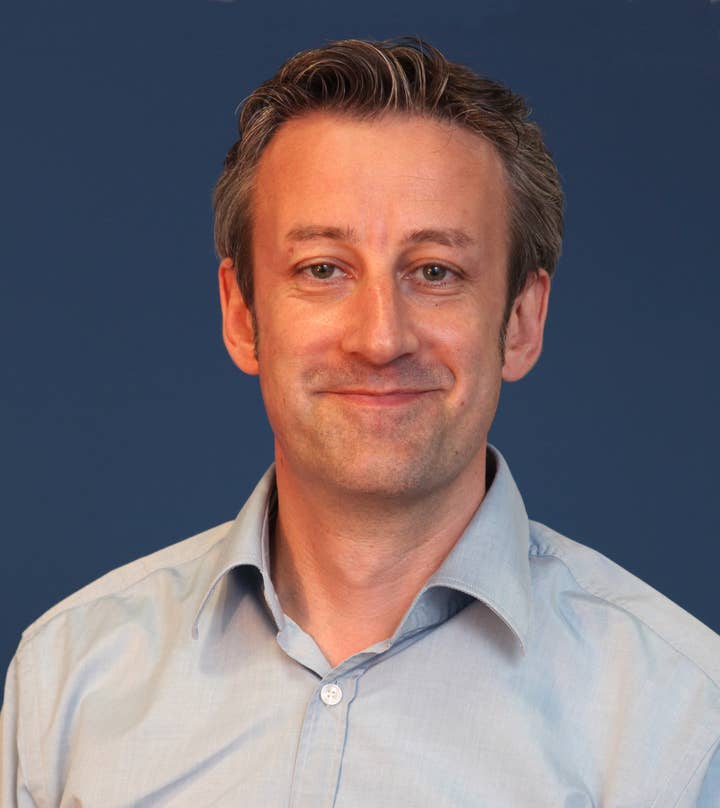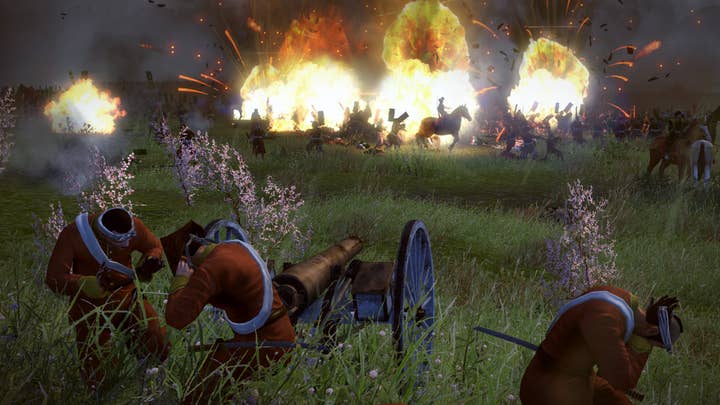The Creative Assembly: Beating The Brain Drain
Studio director Tim Heaton on turning AAA, the problem with Canada, and what everybody gets wrong about Xenomorphs
The evening of Friday March 16 was a memorable occasion for The Creative Assembly. Alongside Rare, Rocksteady, MediaMolecule and Bossa Studio, the veteran strategy developer was one of five British companies to receive an award for excellence in its field; a timely reminder that there's more to the UK games industry than fading glory and nascent start-ups.
For studio director Tim Heaton, however, the real joy was stealing a march on Deus Ex: Human Revolution - the product of one of the Canadian super-studios that have lured so much talent from British developers.
"We looked really carefully at the Viking Team when I started, and we would have closed down the console team if I thought it was weak"
The Creative Assembly - which, for the sake of brevity, Heaton refers to as simply "CA" - is based in the sleepy market town of Horsham, West Sussex. It's a far cry from the concrete, traffic and cosmopolitan bustle of London, but CA has been here since 1987, quietly building one of gaming's definitive strategy franchises, Total War. In that time, the UK industry has slipped from its long-held position at the very forefront of game development, but walking through CA's busy offices tells a different story.
Somewhere above my head there are dozens of people busily working on Total War, in much the same way they have done for many years. But this floor is home to the new face of the studio: a burgeoning AAA console team, hard at work on Sega's latest attempt to do justice to the Alien franchise. There is enough provocative material scattered across the walls and screens around me to send the average fanboy into a rapturous fit, and while the details are a closely guarded (and legally protected) secret, the team at CA seems to be heading in exactly the right direction.
Although the demise of Black Rock Studios and Bizarre Creations can be seen as illustrative of the dangers of being owned by a major publisher, a project like this, Heaton insists, is one of the key advantages.

"Income is good and pretty steady; Total War gives us that," he says. "It's such a fantastically strong franchise and there's a lot of layers to it. We get income from Total War all the time, so we could possibly have survived as an independent. It might have been tougher, but what it would have prevented us from doing is creating a big console game.
"We're interested in AAA console games, definitely, and Sega's backing has allowed us to develop that."
Of course, failure to deliver the sales demanded by a AAA budget is a major part of the reason why the axe fell on Black Rock and Bizarre, but Heaton has no illusions about the risks involved. PC development is more "auteur-led," and the informed, passionate community around it allows games like Total War to thrive. Success in blockbuster console development, however, is about moving units, and "hitting a sweet-spot in the middle of America" - a trick that CA has struggled to pull off in the past.
The studio's previous console projects - specifically Spartan: Total Warrior and Viking: Battle For Asgard - were solid products, but failed to elicit much excitement from critics or consumers. Heaton arrived at the company in January 2009, following 6 years at Electronic Arts as senior development director. At that point, less than a year after the release of Viking, the future of CA's console team was hanging in the balance.
"We looked really carefully at the Viking Team when I started, and we would have closed down the console team if I thought it was weak," he says. "We could probably have sucked them up into the Total War team. But we decided no: there was a core set of leads and senior staff on that team who are fantastic and have a huge amount of experience.
"Having worked on Crysis, and seen what worked and what didn't, I wanted to take some of those learnings and apply them to the console team here. And I think Sega needs, and wants, a really strong Western console dev team."
This is one of the studio's principle goals: to become Sega's go-to developer for AAA projects in the West. In Heaton's view, the Alien project could be the catalyst, and the studio now has the experience necessary to find the right level of success. More to the point, it is also better at managing publishers' expectations.
"The key thing with a publisher, is every time you raise your head to show them something, amaze them," Heaton says. "Try to absolutely make them go, 'Oh my God. We can't say no to this.' There's always a reason not to make a game - that's the issue you're always fighting against, so you have to give them no option.
"I don't think Sega were used to this, but we said, 'You're not allowed in. You're not going to see work-in progress at all. You just have to trust that when we do show you something it will be right.' And we've done that three or four times in the past year-and-a-half."
And the console team has grown quickly. The closure of several UK studios over the past 18 months has been an unexpected and somewhat uncomfortable boon for CA, flooding the UK job market with talented, creative people. Heaton isn't just looking for iPhone developers or graduates; a project like the new Alien game demands talent with proven experience of shipping AAA console games.
"For the console team we've gone very much for experience," he says. "We've been able to do that because other companies have gone bust, but I think that's run dry now, and I don't really see any other UK developers closing down soon. But we've hit our targets so far, and we're where we should be."

Heaton has also found success looking further afield - much further, in fact. The promise of tax credits early next year has given the UK industry a much needed boost, and rightly so; clawing back the ground lost to countries like Canada in AAA development won't be easy. Heaton remains hopeful that the government is willing to offer a similarly generous range of incentives, but he also sees evidence of the British developers who chased blockbuster projects and high wages to the vast studios of Montreal finding the reality rather less appealing.
"We've brought a few people back from Canada, and we think the honeymoon period for some of these big Canadian super-studios is running out," he says. "What we're hearing, and what the people who are coming back from Canada have said, is that it's not all roses over there by any stretch.
"I know what we're up against: we can pay competitive wages, and we'll pay whatever it takes to get people back to the UK"
"I think people get lost in these super-studios. They're bringing in five people a day, and the organisation is trying to sort out how it works. The working conditions are not what you might think."
The human effort required to satisfy the AAA industry of today is vast; hundreds of people working thousands of hours to hit a rigidly defined release date. The stress and sense of anonymity associated with work of that sort is now widely understood, but Heaton also believes that super-studios have been forced to compromise on talent to hit their recruitment milestones.
"If you're Jade Raymond and you've been told to recruit 800 people in Toronto as fast as possible, and you've been given $250 million by the Canadian government to do that, I'm not sure that you're going to recruit the very cream of the crop," he adds.
"I think there are a lot of Brits out there who have entered that machine, and perhaps want to come back home. Or can be tempted to come back home, and I think we're going to be fairly aggressive about that. I know what we're up against: we can pay competitive wages, and we'll pay whatever it takes to get people back here."
"There's a continual debate at CA about craft versus process, and the key thing that we win at is crafting games. It's about passion, it's about ownership - even in a big team. You can devolve, you can own things, you can be the expert. And we want the top 5 per cent of employees to be employed here. People who are super-skilled. I'm a great believer that a great game developer is worth ten-times more than an average game developer. They add everything. The superstars are key to what we do. It's about bringing brilliance to the craft of making games."

